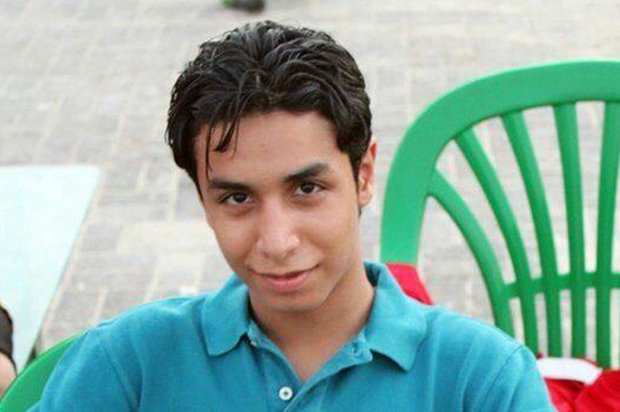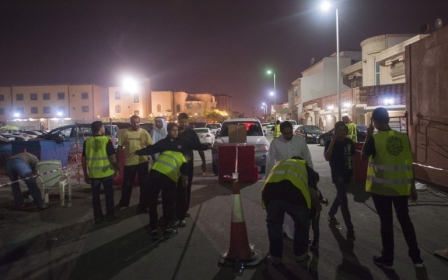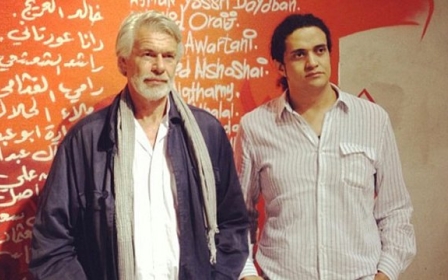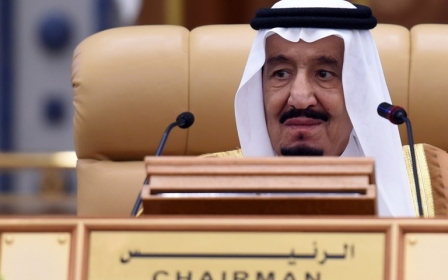Saudi protesters demand release of Shias on death row

At least 1,000 members of Saudi Arabia's Shia minority gathered at a mosque on Friday to demand the release of activists on death row, including one who was aged 17 when he was arrested, a resident said.
The witness said the prayers and sermons at Imam Hussein Mosque in the Eastern Province town of Awamiya drew Shias from nearby Qatif and the al-Ahsa region.
"They gathered to demand their freedom," said the resident, who asked for anonymity. While protests in the Eastern Province are not uncommon, they usually bring hundreds rather than thousands of people to the streets.
Crowds appear to have been rallied by calls made by the family of Shia activist Ali al-Nimr, who faces the death sentence despite being a minor at the time of his arrest in 2012 for protesting.
Rights group have also warned of his imminent execution - by public beheading and crucifixion - although a western diplomatic sources say that Riyadh has reassured them he will not be killed.
Nimr, was 17 when he was arrested in February 2012 for taking part in protest against the Saudi government at the height of the "Arab Spring".
He was later charged with various crimes including attacking police, breaking allegiance to the Saudi king and being part of a terrorist network. His arrest, and alleged confession under torture, has brought condemnation from human rights groups.
Amnesty International warned on Thursday that Nimr was among more than 50 people, including other Shia activists, at increased risk of being put to death in a single day.
Two Saudi newspapers also said that there were plans to execute 50 people convicted of terrorism soon, although the reports appeared to indicate that militants with links to groups like the Islamic State and al-Qaeda were the main targets.
However, after posting the story earlier in the week, the semi-official newspaper al-Riyadh pulled the story from its website without explanation.
Nimr's uncle told the AFP news agency on Friday his family feared "the government is serious, very serious" about carrying out the sentence.
Jaffar al-Nimr said his nephew reported that he had undergone a medical check when his family last spoke to him two weeks ago.
His mother and the mothers of other prisoners implored King Salman for clemency after learning of preparations possibly associated with impending executions, Amnesty International said.
"International law prohibits the use of the death penalty against anyone under the age of 18," Amnesty said.
It added that there were "credible allegations" the three youths had been tortured, while also saying that their trials had not been fair.
'Peaceful people'
Their fate rests with Salman who, activists say, must give final approval before death sentences are carried out.
The case of Jaffar al-Nimr's brother, Shia cleric Nimr al-Nimr, also rests with Salman after the Supreme Court last month upheld his death sentence for sedition.
The cleric - based at Imam Hussein Mosque in Awamiya - was a driving force behind the protests that erupted in 2011 in eastern Saudi Arabia, where most of the country's Shias live.
The protests developed into a call for equality in the Sunni-ruled kingdom, where many Shias have complained of marginalisation.
"They are peaceful people," Jaffar al-Nimr said of his relatives. "They are not criminals."
In recent weeks, however, there has been a marked drop in executions, all of which are reported by the official Saudi Press Agency.
New MEE newsletter: Jerusalem Dispatch
Sign up to get the latest insights and analysis on Israel-Palestine, alongside Turkey Unpacked and other MEE newsletters
Middle East Eye delivers independent and unrivalled coverage and analysis of the Middle East, North Africa and beyond. To learn more about republishing this content and the associated fees, please fill out this form. More about MEE can be found here.




